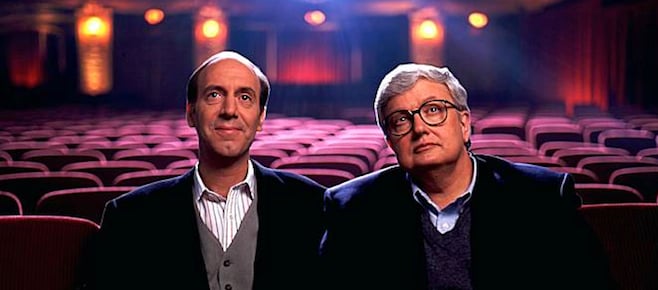Getting used to life without Roger Ebert
Jaime J. Weinman on how Ebert raised the bar for film criticism
Share

Terrible news for anyone who loves movies, or reading about movies, or hearing about movies: Roger Ebert has died.
He was only 70, and it was an inspiration to all of us that he had overcome so much bad luck – the cancer that finally killed him, the loss of his speaking voice – and continued to use the power left to him, the power of words and the ability to communicate with an audience through his writing. Two days ago, he announced that he would have to curtail his writing due to his health. So this wasn’t unexpected, but it was still a shock that it happened so soon. We’re all going to have to get used to being without his prolific writing and formidable knowledge of film. And how many film critics were so famous and respected that their deaths rated a statement from the President of the United States?
For Ebert at his best, I would recommend getting a DVD or blu-ray of Citizen Kane and listening to his audio commentary on the film. This is a picture whose importance everyone acknowledges, but before Ebert, it was sometimes hard to explain why it was such a staggering technical achievement, or how Orson Welles did what he did. Ebert spends 120 minutes explaining, in clear but uncondescending terms that laymen can understand, all the special effects that went into the film (“It has as many special effects as Star Wars,” he famously says), the deep-focus shots, the way the characters are placed within the frame and why. It’s partly a master-class in film technique, but more importantly it’s a lesson in how technique informs storytelling; the why of the technique, as well as the how.
There are so many aspects to his career that you could write pages on each one: the young film reviewer, able to relate instinctively to the new American cinema of the late ‘60s and ‘70s in a way that older critics couldn’t (though he later disowned his early, enthusiastic review of The Graduate).
Then there was Roger Ebert the New Journalist who wrote excellent celebrity profiles, like the visit to the house of a drunken, barely-coherent Lee Marvin, a great example of the journalist who just coolly stands back and gives us a full portrait of the person and his world, and – as Ebert has pointed out – the sort of piece you could never do today, when PR people strictly control access to big stars.
There was the enthusiastic reviewer of many kinds of films (middlebrow mainstream, avant-garde, and populist; he liked them all if they were good) and the guy who could write a great bad review, like his pan of North. (“I hated this movie. Hated, hated, hated, hated, hated this movie. I hated it. Hated every simpering stupid vacant audience-insulting moment of it. Hated the sensibility that thought anyone would like it. Hated the implied insult to the audience by its belief that anyone would be entertained by it.”) And finally, the great user of new media, enthusiastically embracing the power of the internet not only to reach a new audience, but to preserve his past work and make it available at rogerebert.com.
And that’s not even mentioning the fact that he wrote the film Beyond the Valley of the Dolls for director Russ Meyer, one of the great examples of an underground movie made with the resources of a major studio. The line “This is my happening and it freaks me out!” became so famous that it was quoted in Austin Powers. And Ebert did it on his time off from movie reviewing.
But for many of us, of course, he’s above all that guy from TV, one of the two guys you turned to to give you a clear but non-insulting statement about whether they thought a new movie was worth seeing.
Siskel & Ebert was more than just thumbs up and thumbs down on new movies; like Leonard Maltin but relatively few other film critics on mass-market TV, they would cover video releases of old movies and try to make us aware of cinema history as much as they could get away with. (I remember Ebert recommending a video release of Laura by telling us that it had “in some ways, a bigger twist than The Crying Game,” or saying that “if you liked Aladdin, you’ll probably love Thief of Baghdad too.”) Naturally the show was at its best when the two disagreed wildly on the merits of a new picture and they started criticizing each other’s taste: Ebert, for example, seemed less shocked by violence than Siskel, and the two disagreed over whether the bloodshed in Taxi Driver was necessary or off-putting. They really were more than just consumer guides; they were people who helped you understand what was going on in commercial films at a particular time, what the trends were, what the studios thought we wanted to see and why they thought that.
Ebert took that aspect of a reviewer’s job seriously; every movie reviewer’s job is, in part, to tell us whether something is worth our money. But he also wanted to elevate our taste, expand the range of styles and ideas we were open to, and all while acting like he liked us and respected us.